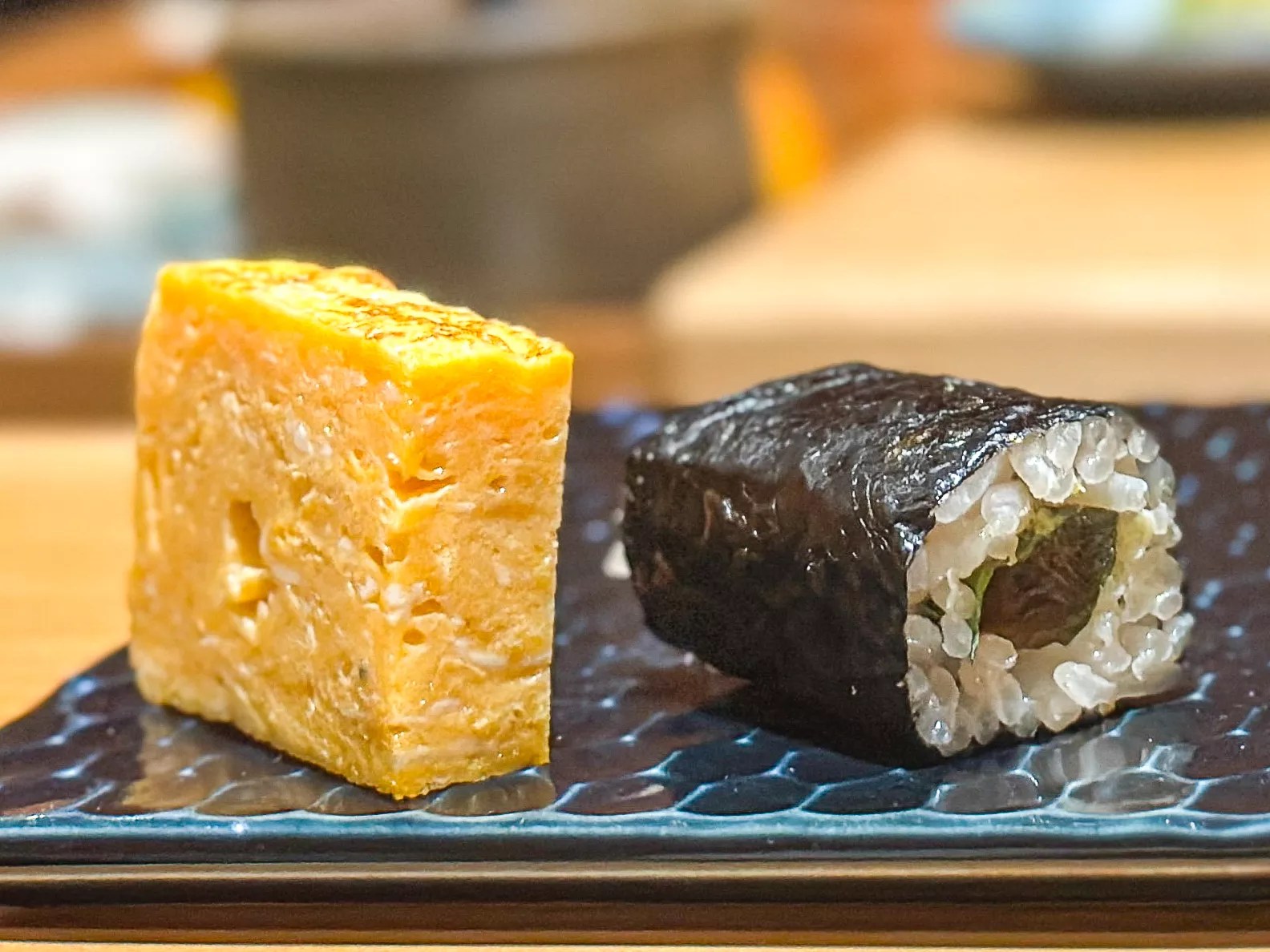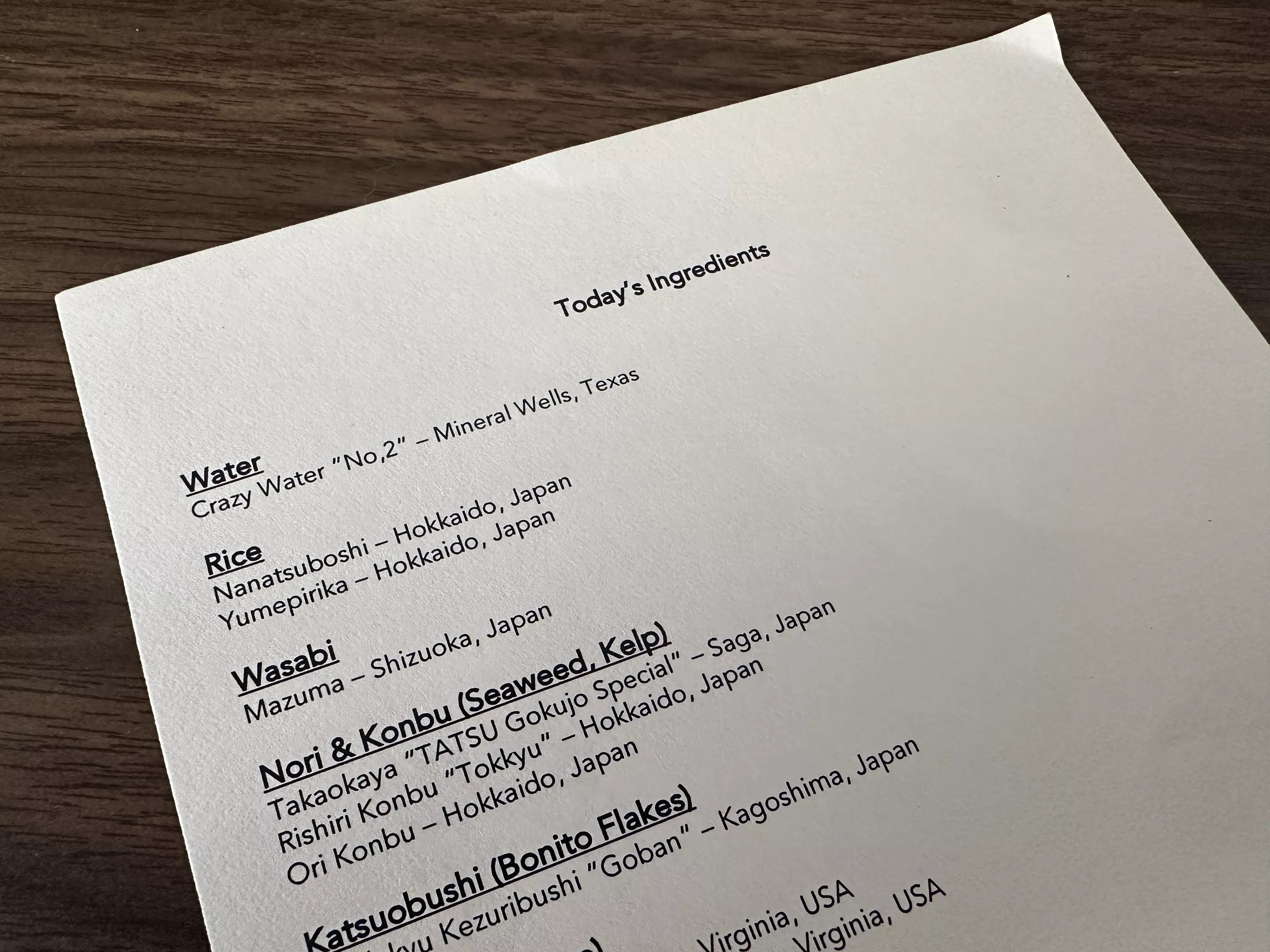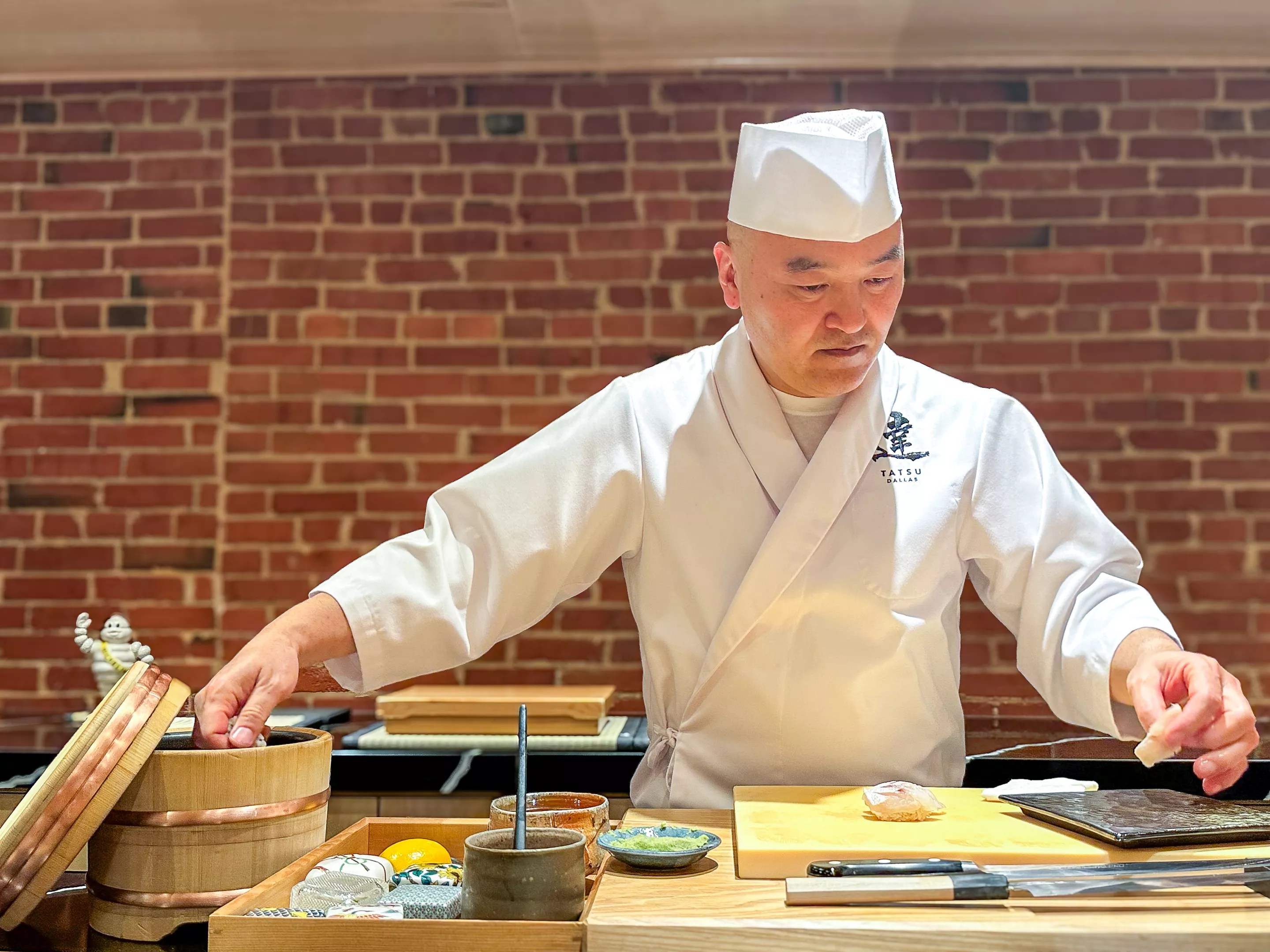
Hank Vaughn

Audio By Carbonatix
Aristotle wrote in Book VIII of Metaphysics that “the totality is not, as it were, a mere heap, but the whole is something besides the parts.” That mouthful is usually simplified to “the whole is greater than the sum of the parts.” There is some basic intrinsic truth to this idea: A painting by a master is more than just the collection of individual brush strokes and pigments; great works of fiction transcend a simple hodgepodge of words and phrases written on the page; and symphonies by classical composers become much more than an ordered arrangement of just the same 12 notes repeated over and over again.
There is another competing philosophy, however: garbage in, garbage out. While it’s true that the whole can often be more than the parts, that doesn’t mean that those parts should be ignored and taken for granted. This is especially true in the culinary arts, where the individual ingredients are extremely important to the gifted chef, who may travel the globe in search of that perfect component to a dish. Each item must in itself be of the highest quality. Fresh, locally sourced, if possible, and harvested, grown or raised by people who take pride in their work and give the ingredient the respect it deserves. Only then will the dish have a chance to become greater than its parts in a sort of culinary gestalt wizardry.
One ingredient in cooking that can often be overlooked, however, is water. It seems to be a simple and uncomplicated ingredient at first blush, but it can make or break an otherwise promising creation. The main variable in water is its mineral content, which is usually described along a continuum of hardness and softness.
Soft water has lower concentrations of calcium and magnesium than hard water. Both can have different amounts of other minerals as well, such as iron or zinc. Soft water also often has higher concentrations of salt than hard water.

Starship Bagel uses reverse osmosis for its water.
Hank Vaughn
Such differences in water can often make or break entire regional cuisines. Bagels and pizza are a perfect example. One often hears that the New York City tap water is why the bagels and pizza taste better there. It’s the largest unfiltered water supply in the country, flowing from the Catskill Mountains and picking up unique trace minerals along the way. But low concentrations of calcium and magnesium make it the second-softest municipal water in the country, right behind Boston.
Oren Salomon of Starship Bagel agrees that water is extremely important in the creation of his bagels, but he isn’t ready to cede bagel superiority to the Big Apple just yet. He has several wins at the New York BagelFest to back him up, among them Best Bagel in 2023. To ensure consistent and optimal water quality, Starship Bagel uses a reverse osmosis system to treat the water they use in their bagel-making process.
Water is obviously an important ingredient in brewing as well, where up to 95% of that glass of craft beer you love is made up of good old-fashioned H2O. Panther Island Brewing in Fort Worth makes hop water with water sourced from Crazy Water, which produces the only mineral water bottled in Texas at Mineral Wells. Crazy Water Owner Carol Elder tells us that Panther Island has experienced very distinct differences in flavor profiles depending on the water they use, and that makes sense. Crazy Water produces five “levels of crazy”; the higher the number, the higher the mineral content of that water.
“Mixologists will use the Crazy Water No. 4 to make simple syrups,” Elder told us. “The bicarbonates in the water will bring out more of the flavor notes of the spirits with only adding a few drops. Teas and coffees do quite well with a No. 2 or No. 3. The alkalinity of water pulls more flavor from the coffee bean or tea leaves without overpowering the flavor. Same with beer and hop waters.”
She tells us that Juice Junkies in Fort Worth also uses Crazy Water.
All this seems pretty straightforward. Of course, water would be important when making beverages, and we’d heard New Yorkers yammering on and on about their superior tap water for years, But we were surprised at the importance a local chef placed upon water recently when out celebrating a milestone birthday at Dallas’ only Michelin-starred restaurant, Tatsu.

Water, the first item on the ingredient list at Tatsu.
Hank Vaughn
Tatsu, an edomae-style omakase, has been open for a couple of years in Deep Ellum. It’s the creation of chef Tatsuya Sekiguchi and his wife, Hiroko. It has won numerous accolades including the aforementioned Michelin star, the first and, so far, only restaurant to be so honored in Dallas. Each sitting is presented with a menu of that night’s dishes, as is the norm, but what’s interesting is the back of that menu, which lists all the ingredients used in that meal along with their specific variety and geographic origin.
Examples include:
Nori: Takaokaya – Saga, Japan
Rice: Yumepirika – Hokkaido, Japan
But what caught our eye was the very first ingredient:
Water: Crazy Water No. 2 – Mineral Wells, Texas
He not only listed water, but listed it first. When asked, Chef Tatsuya told us water is the single most important ingredient in making sushi rice, and since that rice was such an important component of all the sushi, it tops the list.

Chef Tatsuya has his hands full preparing another sushi course, confident in his water choice for preparation of the rice.
Hank Vaughn
So important is water to sushi, when the couple was first contemplating relocation to Texas from New York, they had to make sure the available water was of the quality they needed. Unfortunately, Dallas-area water was too hard to be suitable in making the rice to exacting standards. They began to search for a replacement and eventually found Crazy Water. This was such an important and integral part of the puzzle that Hiroko said that if they hadn’t found a suitable water supply they would not have opened a restaurant here.
Water is important, kids. If not for the perfect Crazy Water, Dallas would not have a Michelin restaurant right now.
So, yes, by all means, try to find that perfect artisanal salt from the rocky slopes of the big island of Hawaii. Sure, source the best organic leeks available, and that triple cream Irish-style butter can’t hurt. Just don’t forget the water.